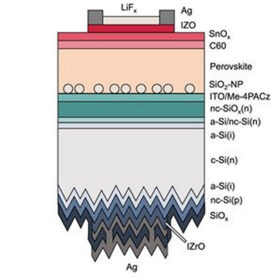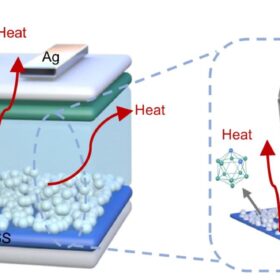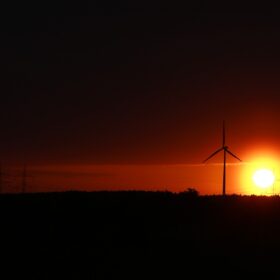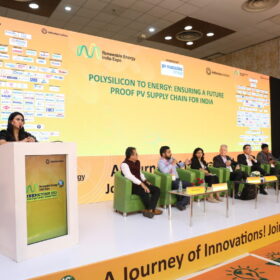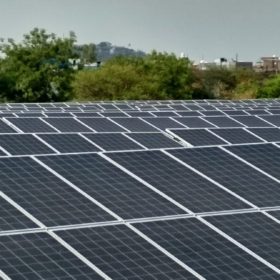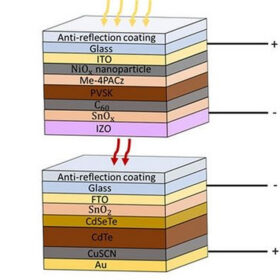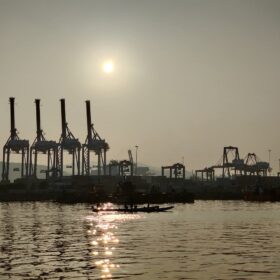EPFL unveils perovskite-silicon tandem solar cell with certified efficiency of 30.9%
The tandem solar cell is based on a perovskite top cell treated with an additive known as 2,3,4,5,6-pentafluorobenzylphosphonic acid (pFBPA), which reportedly improves its power conversion efficiency and fill factor. The tandem device also integrates a bottom heterojunction silicon cell made with a 190-μm-thick, 2 Ω.cm, n-type, float-zone, shiny-etched monocrystalline wafer.
All-perovskite tandem PV cell based on carboranes hits 27.2% efficiency
Researchers have developed a thermal regulation strategy to improve the performance of inverted tin-lead perovskite tech for all-perovskite tandem solar cells. It has an efficiency of 23.4% and contributed to a 27.2% efficiency in a tandem cell while ensuring stability.
Silfab Solar secures funds to develop US-made back-contact n-type PV cells
Silfab Solar is one of seven recipients of US Department of Energy (DoE) funding for projects that will rely on dual-use PV technologies to electrify buildings, decarbonize the transportation sector, and reduce land-use conflicts.
Global solar and wind generation will soon pass nuclear, hydro
In a new monthly column for pv magazine, the International Solar Energy Society (ISES) explains how solar and wind are dominating power plant construction.
IEA-PVPS launches action group on agrivoltaics
IEA-PVPS is poised to launch a new format for expert engagement. It will include an action group on agrovoltaics, as well as a collaborative effort to match agriculture and solar generation. It aims to unlock the potential of agrivoltaics, optimize land use efficiency, enhance agricultural resilience to climate change, and foster social consensus for solar development.
The U.S. multi-pronged approach to onshoring solar manufacturing
The U.S. aims for a domestic solar supply chain, but the industry’s capacity to serve the early stages in solar manufacturing are minimal. Will its recent industrial policy efforts make a difference?
Novel hydrophobic, antireflective coating for solar glass
Slovakian scientists have developed a novel hydrophobic, antireflective coating for solar glass with a silica-titania thin film as the bottom layer and an inorganic-organic upper layer made of silica modified with triethoxy(octyl)silane. This new coating increases glass transmittance by 7% compared to uncoated glass.
Competition, oversupply to reduce n-type solar module prices
Global solar demand will continue to grow in 2024, with module demand likely to reach 492 GW to 538 GW. Amy Fang, a senior analyst at InfoLink, looks at module demand and supply chain inventories in a market still affected by oversupply.
Oriano secures EPC order for 75 MWp solar power plant
Oriano Clean Energy has received the engineering, procurement and construction (EPC) contract for a 50 MW AC/ 75 MWp solar power plant. The plant commissioning period is seven months.
U.S. scientists demonstrate 25%-efficient perovskite-cadmium tandem solar cell
The researchers say the cell has a top perovskite cell with a transparent back contact made of indium zinc oxide and a commercially established cadmium telluride bottom device. They claim the champion tandem cell has the potential to reach a 30% efficiency.
